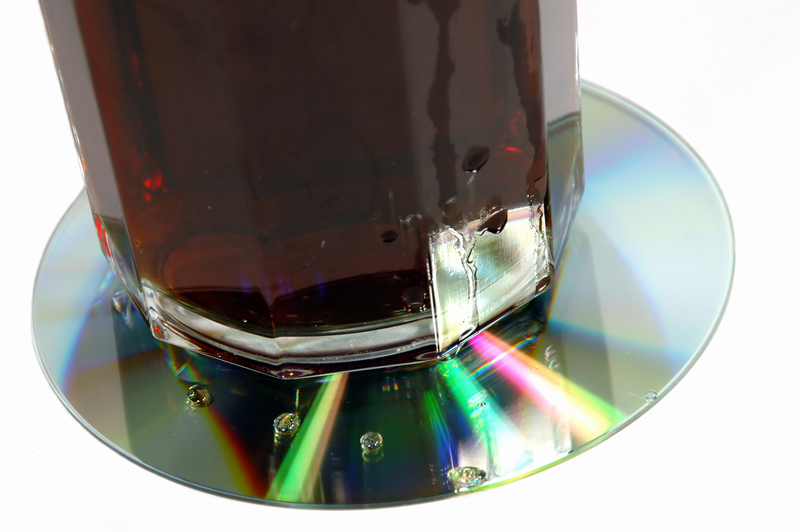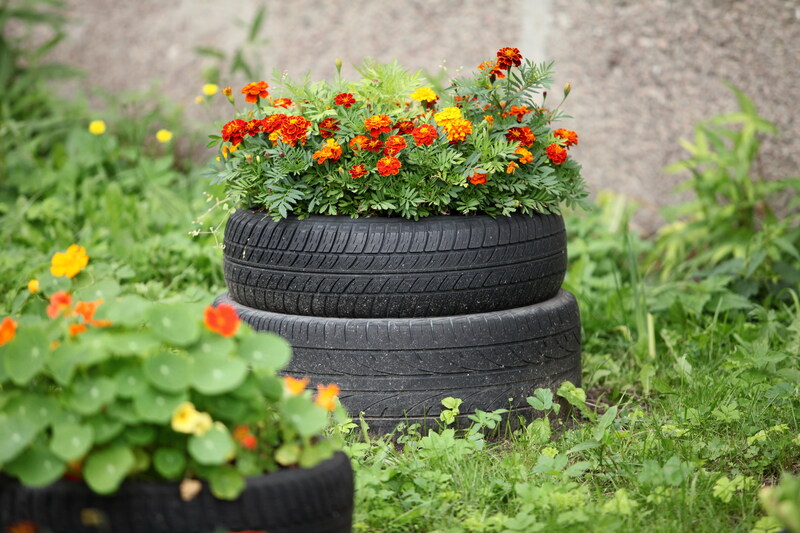From Home to Healthcare: Smart PPE Disposal Insights
PPE, or personal protective equipment, is an essential defense mechanism in both domestic and professional healthcare environments. From simple face masks used at home to medical-grade gloves donned in hospitals, PPE has become a staple in contemporary safety protocols--especially in response to global health crises such as the COVID-19 pandemic. But with the increase in usage comes an urgent issue: How do we dispose of PPE smartly and responsibly? This comprehensive guide explores cutting-edge solutions and best practices for disposing of PPE across homes and healthcare settings, featuring crucial PPE waste management tips and innovative smart PPE disposal strategies.

Understanding the Scope: PPE in Everyday Life and Healthcare
Personal protective equipment encompasses a variety of items, including masks, gloves, face shields, protective suits, and shoe covers. While once primarily associated with hospitals and clinics, the outbreak of infectious diseases has normalized PPE use in schools, offices, public transportation, and households across the globe.
- At Home: Disposable face masks and gloves commonly used, especially during illness or pandemic surges.
- In Healthcare: Frequent use of all forms of PPE, including high-grade respirators, gowns, and goggles.
- Public Spaces: Mask mandates and hand protection have become requirements in public transportation, malls, and other community spaces.
Why Smart PPE Disposal Matters
The surge in PPE usage has also given rise to a parallel challenge: PPE waste management. Improper disposal of masks and gloves leads to environmental contamination, risks of disease transmission, and strained municipal waste systems. Furthermore, the risk is amplified in healthcare facilities, where infectious agents can potentially survive on disposable equipment for hours or even days.
- Environmental Impact: PPE is often made from non-biodegradable plastics like polypropylene, and improper disposal directly contributes to land and marine pollution.
- Health Hazard: Careless disposal, such as tossing used masks onto sidewalks or beaches, poses direct health threats to sanitation workers and the public.
- Resource Management: Increased waste demands adjustments in waste collection, sorting, and recycling efforts city-wide and within medical facilities.
The Evolution of Smart PPE Disposal
Traditional approaches to PPE disposal have often been simplistic--throw it away in a "red bag" if in a hospital, or in the household trash if at home. However, as volumes soar and sustainability becomes a societal priority, smart PPE disposal methods have entered the mainstream. Below, we explore the technologies and strategies driving this transformation, making the handling of disposable personal protective equipment safer and more intelligent.
What is Smart PPE Disposal?
Smart PPE disposal refers to advanced practices and technological solutions that aim to optimize the collection, segregation, treatment, and recycling of used PPE in a way that is safe, efficient, and eco-friendly. This can include everything from labeled sorting bins with sensors to dedicated PPE recycling programs and digital waste tracking software.
- Use of touchless disposal bins with automated lids to minimize contamination
- Sensor-based waste tracking for hospitals to monitor waste volume and streamline waste pickup
- Dedicated PPE recycling facilities capable of repurposing plastics from disposable masks and gowns
- Integration of artificial intelligence for image-based waste sorting in large facilities
Smart PPE Disposal in Homes
Families and individuals can significantly contribute to public safety and environmental protection by following home-friendly PPE disposal best practices. Although simpler than in a hospital setting, the core tenets of safe PPE disposal at home are just as critical:
- Designate a PPE Disposal Bin: Use a small, lined bin with a lid specifically for used masks, gloves, and sanitizing wipes. This prevents contamination of general waste and makes collection easier during illness outbreaks.
- Seal and Bag PPE Waste: Before disposal, double-bag used PPE items, especially if contaminated. Tie the bags securely, and if caring for a sick person, label them accordingly.
- Disinfect the Bin: Regularly clean and disinfect the disposal receptacle to prevent disease spread.
Pro Tip: If possible, allow PPE waste to sit sealed for 72 hours before placing it in external garbage bins. This reduces the risk of active viral or bacterial transmission to sanitation workers.
Smart MedTech: PPE Disposal in Healthcare Settings
Healthcare institutions bear a unique responsibility both in volume and complexity of PPE waste. Smart PPE disposal in hospitals is critical in preventing healthcare-associated infections and environmental harm.
- Automatic Waste Segregation: Use color-coded bins and digital imaging systems to segregate infectious PPE from non-contaminated waste.
- On-Site Disinfection: Employ mobile sterilization units or autoclaves to treat PPE waste, reducing volume and ensuring safety before transport.
- Digital Waste Tracking: Leverage barcodes and IoT to track disposed PPE, monitor bin capacity, and schedule collection, reducing exposure for staff and visitors.
Environmental Impact and Sustainable PPE Waste Management
While the protection offered by single-use PPE is invaluable, the sustainability challenge looms large. Global reports estimate that almost 129 billion face masks and 65 billion gloves are used and discarded monthly worldwide. Most of these contain synthetic polymers that do not break down readily in the environment.
How Smart PPE Disposal Reduces Environmental Harm
- Minimization of Litter: Clear labeling and dedicated bins encourage correct disposal, dramatically reducing PPE litter in parks, streets, and natural habitats.
- PPE Recycling Programs: Some municipalities and companies have developed programs to collect and recycle certain types of PPE, transforming them into construction materials, furniture, or energy. Look for programs or recycling partnerships in your area.
- Waste-to-Energy Technologies: Advanced incineration processes can generate energy from PPE waste, although emissions controls are essential to prevent air pollution.
Note: Not all PPE can undergo traditional recycling. Medical waste regulations and contamination concerns often require specialized treatment, but ongoing research is generating new opportunities for sustainable PPE management.
Best Practices and Tips for Smart PPE Disposal
At Home
- Always wash your hands with soap and water for at least 20 seconds after disposing of PPE.
- Place PPE waste in a designated, lined bin with a closed lid.
- Double-bag PPE and seal bags before disposal.
- Avoid flushing masks or gloves down toilets or sinks.
- Reuse washable masks whenever possible--wash cloth masks in hot water regularly.
In Healthcare Facilities
- Train staff regularly on the latest PPE waste handling protocols.
- Use touchless bins, color-coded for biohazard waste.
- Implement digital monitoring and tracking systems for all hazardous and non-hazardous PPE waste.
- Partner with reputable waste treatment and recycling companies.
- Explore reuse and sustainability initiatives for non-infectious PPE, such as donation or refurbishment programs.
The Future of Smart PPE Disposal Solutions
Emerging smart PPE disposal technologies offer promising solutions to both the efficiency and sustainability challenges posed by rising PPE waste. Startups and innovators are developing:
- Solar-powered PPE Disposal Bins: Equipped with UV disinfection and compaction features, reducing waste volume and sanitizing contents.
- Smart Sensors and AI: Real-time monitoring of bin fill levels, usage patterns, and automatic scheduling for waste collection trucks.
- PPE Upcycling Initiatives: Creative projects converting used materials into durable boards, bricks, or even fuel, reducing landfill dependency.
The global movement toward zero waste means responsible individuals, families, and institutions must collaborate to adopt smarter PPE disposal processes, support technology adoption, and promote education around PPE waste.
Frequently Asked Questions About Smart PPE Disposal
Is it safe to recycle disposable masks and gloves?
Most single-use masks and gloves are made of mixed materials and are not accepted in traditional recycling streams. Specialized programs are being piloted in certain areas to handle this waste, but never place contaminated PPE in standard recycling bins.
What should I do with used PPE if someone at home is ill?
Bag all contaminated items separately, seal tightly, and mark the bag before placing it in your external bin. If available, keep the waste isolated for several days before disposal.
How can healthcare facilities optimize PPE waste handling?
Implement smart disposal systems using color-coded bins, automated tracking, on-site sterilization, and staff training. Consider digital tools for waste monitoring and route optimization to minimize exposure risks.
Are there eco-friendly PPE alternatives?
Yes! Many designers now offer biodegradable masks and gloves, and washable respirators for both home and hospital use. However, proper cleaning and sanitization protocols must be followed.

Conclusion: Building a Culture of Responsibility Around Smart PPE Disposal
The journey from home to healthcare in smart PPE disposal represents a shift in both mindset and practice. Every used mask, glove, and gown presents both a potential hazard and an opportunity. Through collective vigilance, technology adoption, and education, households and healthcare providers alike can dramatically minimize health risks and environmental burden. Whether you are a concerned family member, healthcare worker, or community leader, your role in continuing the push toward smart PPE disposal is pivotal.
- Advocate for safe habits at home by following PPE disposal best-practices.
- Support smart technology and sustainability efforts in your local healthcare system.
- Share educational resources and encourage responsible behavior in your community.
As we move into a future increasingly defined by global cooperation and scientific advancement, making smart choices about PPE disposal is not just a personal responsibility, but a collective one that defines the health of people and the planet alike.
Ready to Take Action?
Start by assessing your current PPE disposal habits at home and advocating for smart PPE disposal systems at work or in your community. The benefits--safer neighborhoods, protected wildlife, and efficient healthcare--begin with you!